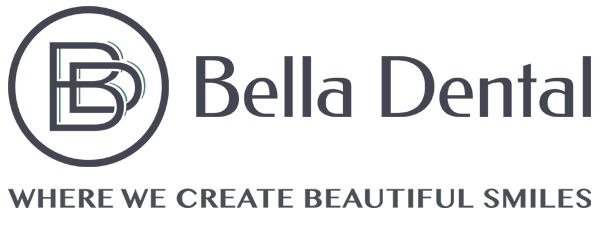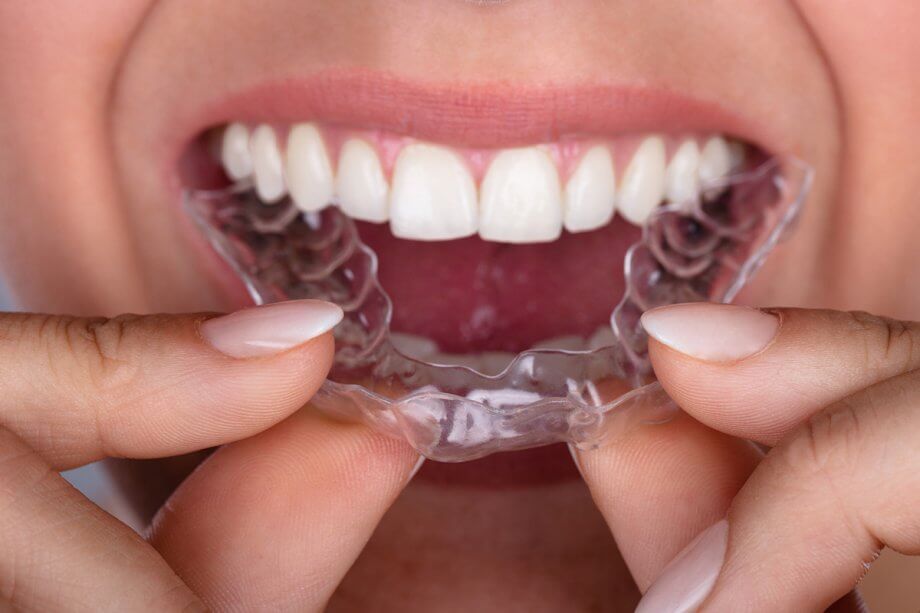Misaligned teeth don’t merely have a negative impact on your appearance. If a patient with misaligned teeth doesn’t receive treatment, they might experience such complications as:
- Increased odds of tooth decay and gum disease, as cleaning misaligned teeth can be more difficult than cleaning other teeth
- Difficulty with basic tasks like chewing and speaking
- Discomfort
- Greater odds of tooth damage, as dental misalignments can subject certain teeth to greater wear and tear
In the past, patients with misaligned teeth had to correct said misalignments with traditional metal and wire braces. That’s no longer the case.
Some patients can now address misalignments with Invisalign. The Invisalign treatment method allows patients to correct misalignments by wearing clear aligners instead of metal braces.
You may find this treatment option appealing if you don’t want braces to negatively impact your smile’s appearance during treatment. However, you might also be reluctant to commit to Invisalign treatment for a simple and understandable reason: You’re not certain it will actually work.
Such a concern is natural. Luckily, if a patient follows the instructions of their dentist, they may find that Invisalign is at least as effective as traditional orthodontic treatment.
What Does Invisalign Treatment Involve?
When a patient opts for Invisalign over braces, a dentist may provide Invisalign’s lab with x-rays and impressions of the patient’s teeth. The lab will use these materials to generate sets of clear customer aligners.
A dentist will instruct a patient to wear a set of aligners for a certain length of time every day until it’s time to replace the current set of aligners with a new set. During treatment, the aligners gradually shift the position of a patient’s teeth, correcting their misalignments without the wires and brackets of braces.
Again, if you’re an Invisalign patient, listening to your dentist and following their instructions regarding when and how to wear your aligners is critical. Using the aligners correctly is key to maximizing the effectiveness of your treatment.
Yes, Invisalign Works
Obviously, Invisalign the company will claim that this treatment option is as effective as braces. The dentist offering Invisalign treatment will probably make a similar claim.
Luckily, you don’t need to take their word for it. According to a study in the journal BMC Oral Health, researchers reviewed several studies regarding the effectiveness of Invisalign and traditional braces. They found no statistical difference in the results patients achieved with either treatment option. What they did find, however, is that a statistically significant number of patients who chose Invisalign underwent shorter overall treatment than patients who opted for braces.
In other words, the current research doesn’t just show that Invisalign works. Research indicates Invisalign may work as well as braces while also working more quickly.
Additional Benefits of Invisalign
Independent research confirms Invisalign is effective. Choosing this option allows a patient to address a misalignment without having to wear braces during treatment.
Other benefits of Invisalign include:
- Easier oral care, as a patient can remove Invisalign aligners to brush and floss their teeth
- No dietary limitations during treatment, because patients also remove Invisalign aligners before eating
- Enhanced comfort
These are all reasons to consider Invisalign as an alternative to braces if your dentist recommends this treatment option. Once more, you simply need to carefully follow their instructions when wearing your aligners. If you do, according to research, your treatment should deliver results.
Learn More About Invisalign in New Jersey
At Bella Dental, with offices in Brick, Holmdel, and Oakhurst, NJ, our team will gladly answer any questions you may have about Invisalign. Get started today by calling us at 732-739-3070 (Holmdel office), 732-477-1335 (Brick office), or 732-531-8533 (Oakhurst office) to request an appointment.

